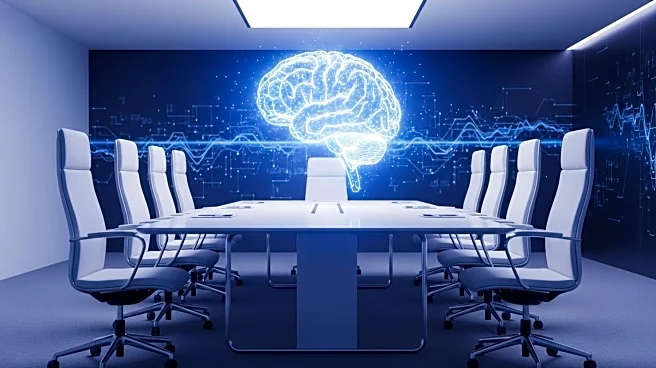What is the story about?
What's Happening?
Stefani Steinway, CHRO at Equifax Workforce Solutions, emphasizes the need for HR leaders to shift from reactive to proactive strategies by integrating AI into their processes. Steinway highlights the potential of AI to automate repetitive tasks, allowing HR teams to focus on strategic initiatives such as employee engagement and talent development. Equifax's survey reveals that 76% of HR professionals use AI to improve hiring efficiency, yet many still face challenges in automating workflows. Steinway advocates for building digital fluency and a supportive culture to ease the transition to AI-driven HR practices.
Why It's Important?
The integration of AI in HR processes represents a significant opportunity for organizations to enhance efficiency and strategic planning. By automating routine tasks, HR teams can allocate more resources to critical areas like employee retention and development. This shift could lead to improved workforce management and competitive advantage in the marketplace. However, successful implementation requires a cultural shift and investment in training and resources to ensure employees are equipped to leverage AI effectively.
What's Next?
HR leaders are encouraged to adopt a growth mindset and explore innovative approaches to change management as AI becomes more prevalent in HR functions. Steinway suggests using predictive analytics to anticipate staffing needs and identify retention risks, positioning HR as a proactive partner in strategic planning. Organizations may need to invest in scalable training programs and leadership development to align employees with business strategies and foster a culture of innovation.
Beyond the Headlines
The adoption of AI in HR raises ethical considerations regarding data privacy and the impact on employee autonomy. As AI tools become more integrated into HR processes, organizations must navigate potential concerns about surveillance and bias in decision-making. Long-term, the shift towards AI-driven HR practices could redefine traditional roles and require new skill sets, prompting a reevaluation of workforce training and development strategies.
















